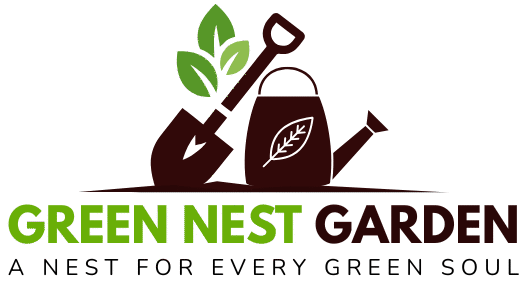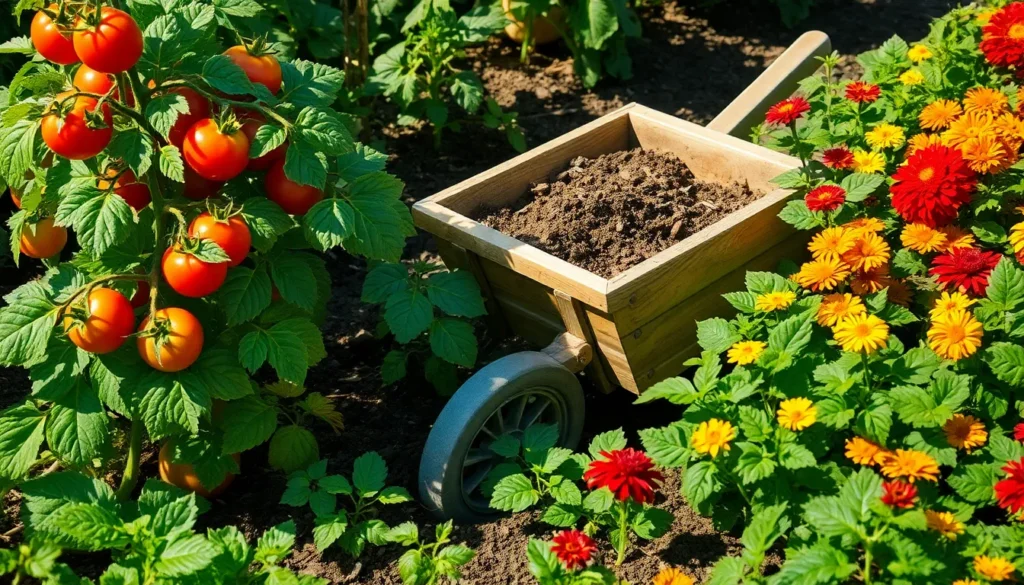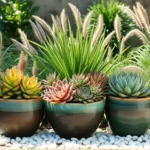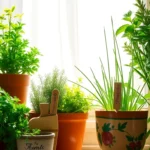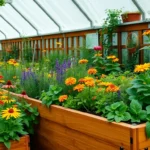Gardening is more than just a hobby; it’s a journey filled with the joy of nurturing life and reaping its bountiful rewards. Whether you’re planting your first seed or cultivating a thriving oasis, understanding the importance of organic fertilizers can transform your garden into a lush paradise. Our guide, “Best Organic Fertilizers for Garden,” is crafted to inspire and empower gardeners of all skill levels, ensuring each step you take is grounded in nature’s best offerings.
For beginners, this guide serves as a welcoming hand, introducing you to the essentials of organic nourishment that promise vibrant blooms and hearty harvests. Experienced gardeners will find it a treasure trove of insights, perhaps discovering new favorites that complement their tried-and-true practices. By choosing the right organic fertilizers, you’ll not only enhance the health of your plants but also contribute to a sustainable environment, making your gardening journey even more rewarding. With this guide, you’ll gain practical knowledge that leads to flourishing plants, boosting your confidence and your garden’s vitality.
Compost Tea Brewers (Boosts Microbial Activity)
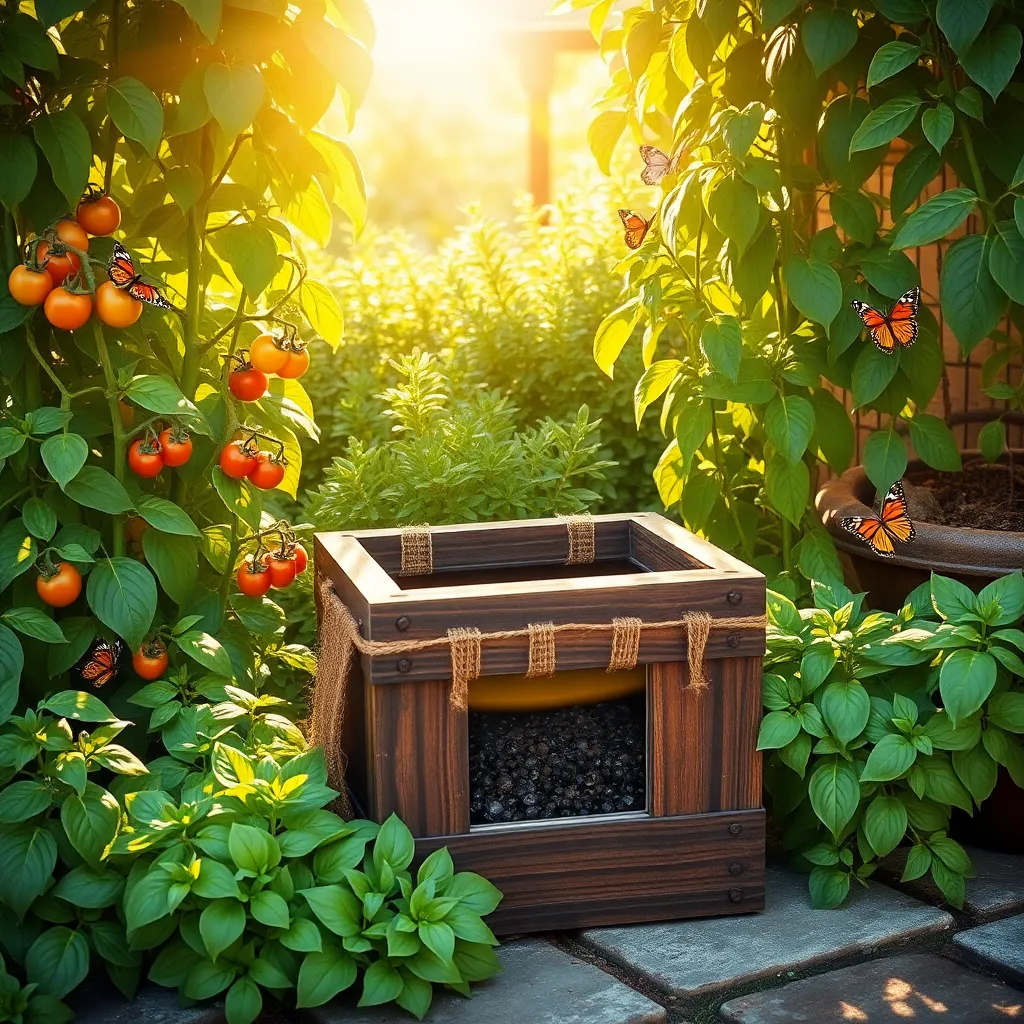
Compost tea brewers offer a dynamic way to boost microbial activity in your soil, enhancing plant health and growth. By brewing a nutrient-rich liquid from compost, you create a living solution teeming with beneficial microorganisms that can improve soil structure and fertility.
To make compost tea, use a breathable bag to steep quality compost in water for 24 to 48 hours, ensuring constant aeration with an aquarium pump to promote microbial growth. This simple method turns everyday compost into a powerful liquid fertilizer that can be applied directly to plant leaves or the soil.
For beginners, it’s important to start with high-quality, mature compost to ensure the best results. If you’re new to brewing, try using a 5-gallon bucket with an air pump as an affordable setup that provides plenty of tea for a small garden.
More experienced gardeners might explore different compost blends, such as adding worm castings or seaweed, to tailor the microbial population for specific plants. Regularly applying compost tea every two to four weeks can help maintain a healthy garden ecosystem, reducing the need for synthetic fertilizers.
When applying compost tea, ensure your plants are well-watered beforehand to maximize absorption. Additionally, morning or late afternoon applications are ideal, as this helps prevent any potential leaf burn during the hottest parts of the day.
Bone Meal Fertilizer (High in Phosphorus for Root Growth)
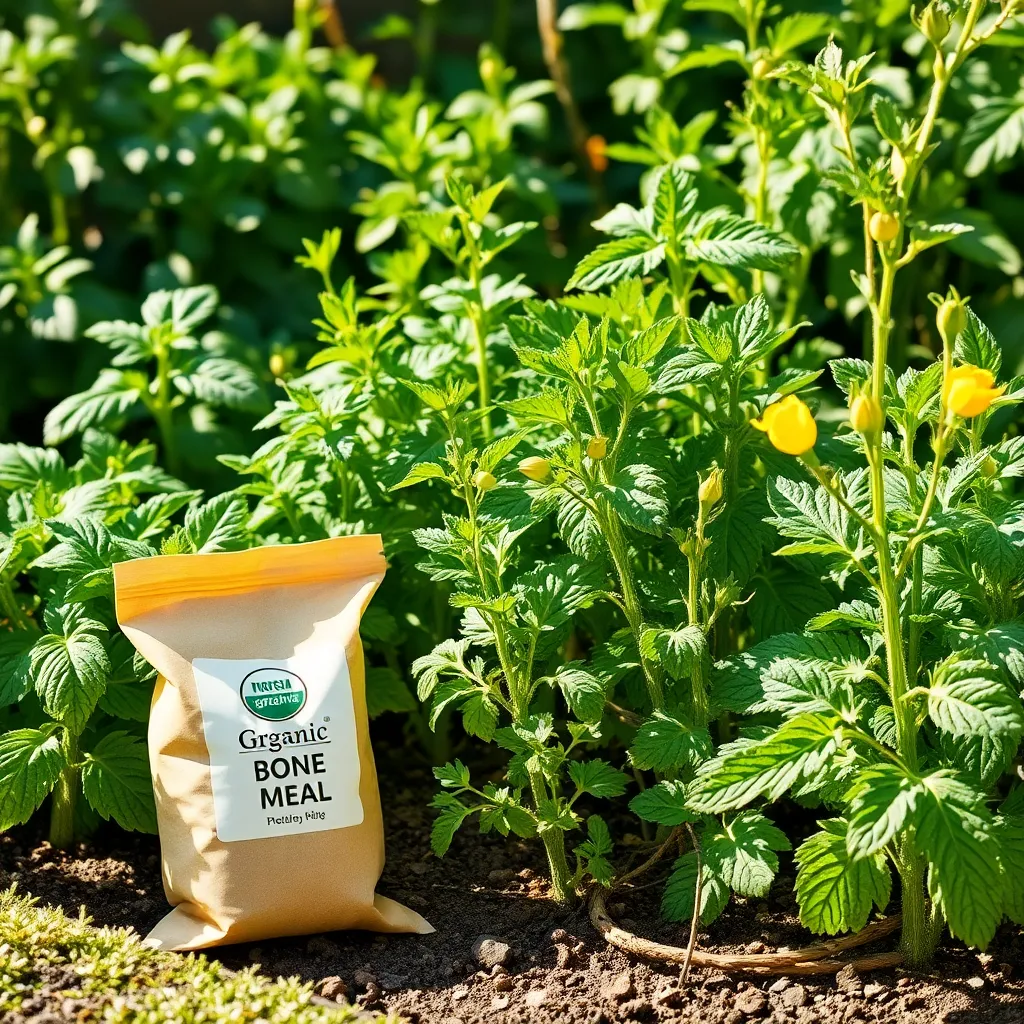
Bone meal fertilizer is an excellent organic option, particularly high in phosphorus, which is crucial for promoting strong root growth. Gardeners can apply it during the planting stage to help establish a robust root system in young plants.
To use bone meal effectively, sprinkle it directly into the planting hole and mix it into the soil before placing your plant. This ensures that the nutrients are readily accessible to the roots as they begin to develop.
It’s important to note that bone meal is best suited for plants that thrive in a balanced pH environment. Before application, test your soil to ensure it is not too acidic, as this can inhibit the absorption of phosphorus.
For those looking to maximize the benefits, consider pairing bone meal with other organic fertilizers like compost or well-rotted manure. This combination can enhance the overall fertility of the soil, providing a comprehensive nutrient profile for your garden.
Fish Emulsion (Fast-Acting Nutrient Source)
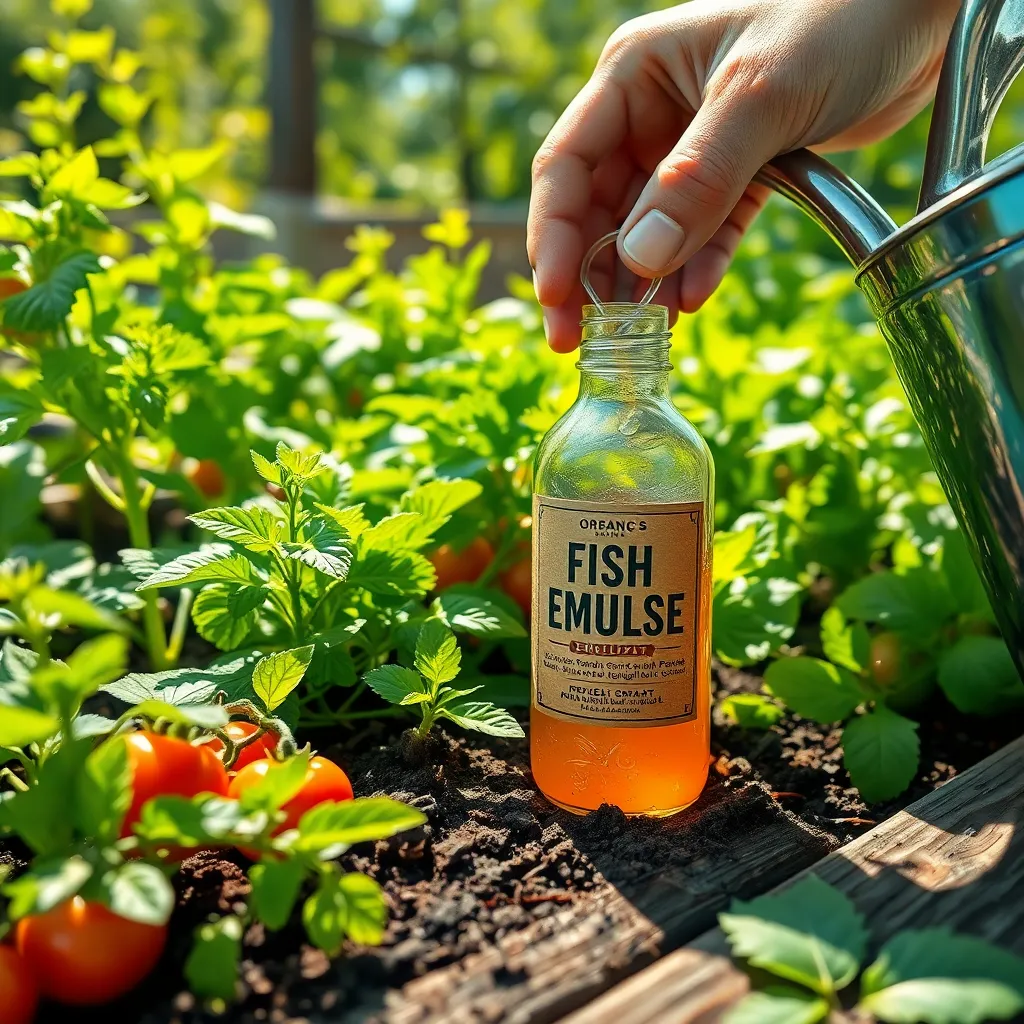
Fish emulsion is a popular organic fertilizer known for its fast-acting nutrient supply, making it ideal for quick plant growth boosts. Derived from fish waste, it provides a potent source of nitrogen that can invigorate plants, especially during the growing season.
Apply fish emulsion by diluting it with water according to the package instructions, typically at a ratio of 1 tablespoon per gallon of water. Use this mixture to water your plants every two to three weeks, applying it directly to the soil around the base of the plants to ensure efficient nutrient uptake.
One of the great benefits of fish emulsion is its ability to improve soil health and microbial activity. As it breaks down, it adds organic matter to the soil, enhancing its structure and fertility over time.
For advanced gardeners, consider using fish emulsion in combination with other organic fertilizers like bone meal or compost to create a balanced nutrient profile. Avoid using fish emulsion on very young seedlings, as the high nitrogen content can be overwhelming; instead, wait until plants have a few true leaves.
Seaweed Extract (Rich in Trace Minerals)
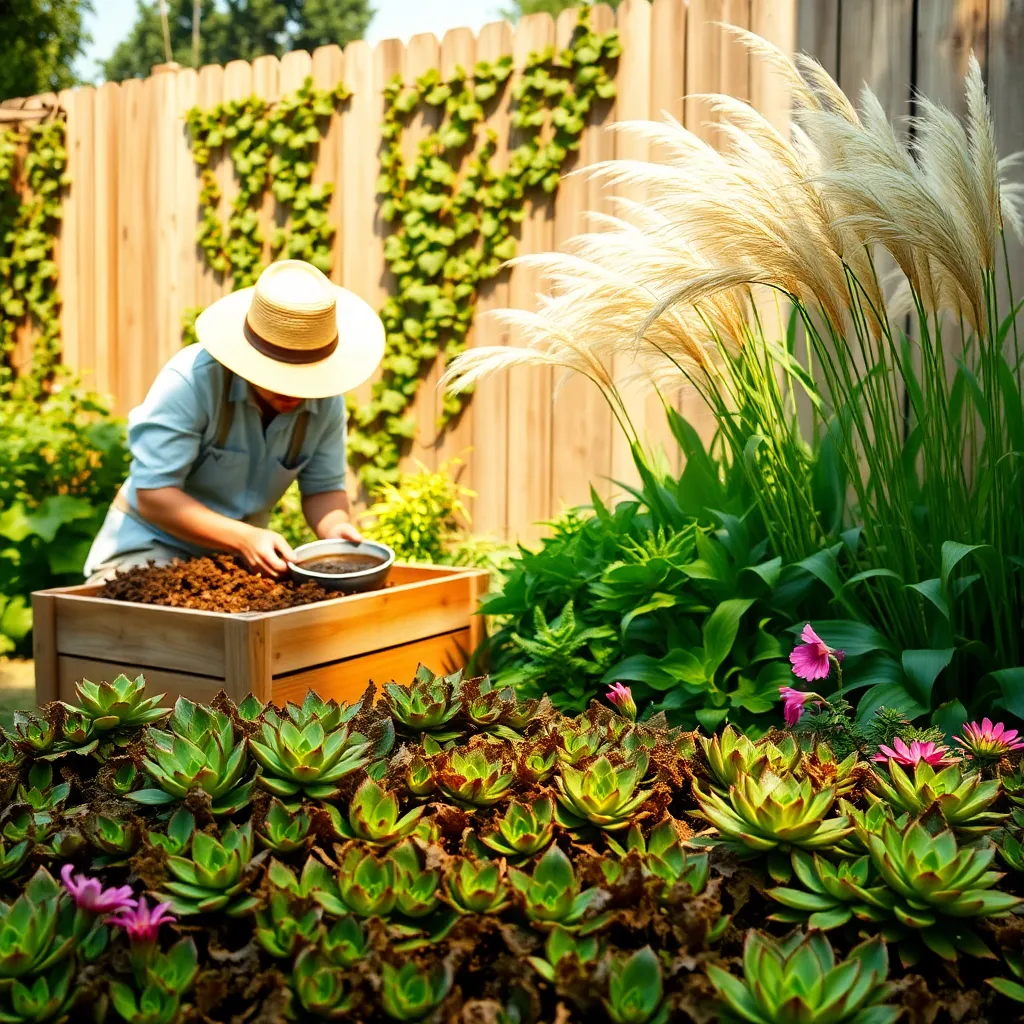
Seaweed extract is a wonderful organic fertilizer rich in trace minerals that can significantly boost plant health. It is derived from seaweed, which is sustainable and environmentally friendly, making it an excellent choice for eco-conscious gardeners.
One of the key benefits of seaweed extract is its ability to enhance plant resilience, helping plants withstand environmental stresses such as drought and pests. For beginners, applying seaweed extract as a foliar spray can be a simple way to start, as it allows plants to absorb nutrients directly through their leaves.
To maximize the benefits, use seaweed extract in conjunction with your regular watering routine, applying it every two to four weeks. Advanced gardeners can experiment with different dilutions, typically starting with a ratio of 1:500, to tailor the nutrient delivery to specific plant needs.
Seaweed extract can be especially beneficial in sandy or clay soils, where trace minerals are often lacking. By incorporating this natural fertilizer into your garden, you will not only improve soil structure but also promote vigorous root growth and vibrant foliage.
Vermicompost Bins (Efficient Waste-to-Fertilizer Solution)
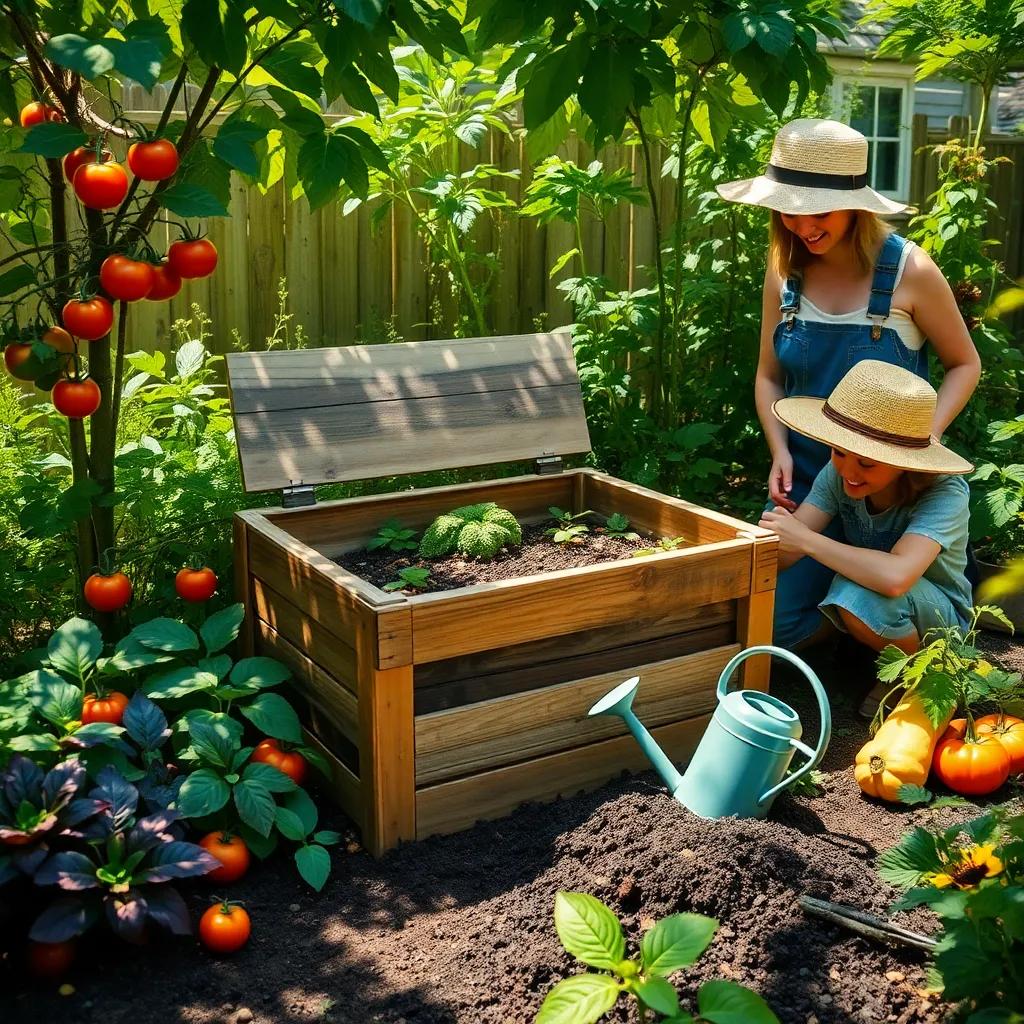
Vermicompost bins offer a highly efficient way to turn kitchen scraps into nutrient-rich fertilizer. These bins harness the natural decomposition power of worms, specifically red wigglers, to produce a superior soil amendment.
To start a vermicompost bin, you need a container with adequate drainage and ventilation. Drill small holes in the sides and bottom of a plastic or wooden bin to ensure proper air flow and moisture management.
Add a bedding layer made from shredded newspaper, cardboard, or coconut coir to create a comfortable environment for the worms. Keep the bedding moist but not soggy, maintaining a consistency similar to a wrung-out sponge.
Introduce your red wigglers to their new home and feed them small amounts of fruit and vegetable scraps, avoiding citrus, onions, and garlic, which can be harmful to them. Gradually increase the amount of food as the worm population grows and they become more efficient at decomposing waste.
Collect the rich, dark compost produced by the worms, known as worm castings, every few months. Use these castings to enrich your garden soil or as a potent fertilizer for potted plants, providing them with essential nutrients and improving soil structure.
Conclusion: Growing Success with These Plants
In nurturing the garden of your relationship, we’ve explored five key concepts that mirror the best organic fertilizers for flourishing bonds. First, we delved into the importance of understanding your partner’s needs, akin to knowing the soil’s requirements. Second, we highlighted the power of consistent communication, much like regular watering. Third, we discussed the role of trust and honesty, which act as sunlight to the growth of your connection. Fourth, we examined the value of shared experiences that enrich your bond, similar to adding nutrients. Lastly, we emphasized the necessity of patience and understanding, mirroring the time it takes for gardens to bloom.
To immediately cultivate your relationship, start with a simple, heartfelt conversation with your partner today. Openly discuss your needs and listen to theirs, planting the seeds for deeper understanding. As you embark on this nurturing journey, bookmark this article for future reference, ensuring you have these valuable insights at your fingertips.
Remember, cultivating a thriving relationship requires ongoing care and attention. By applying these principles, you’re not just investing in today’s connection but also sowing the seeds for a successful relationship tomorrow. Save this article and revisit it whenever you need a gentle reminder of how to keep your relationship garden vibrant and thriving.
